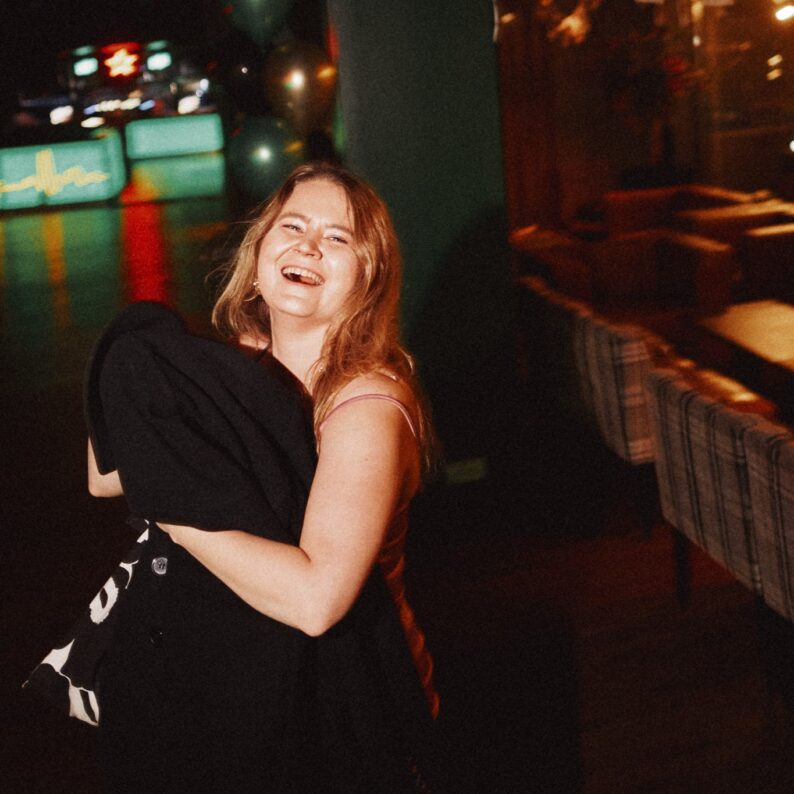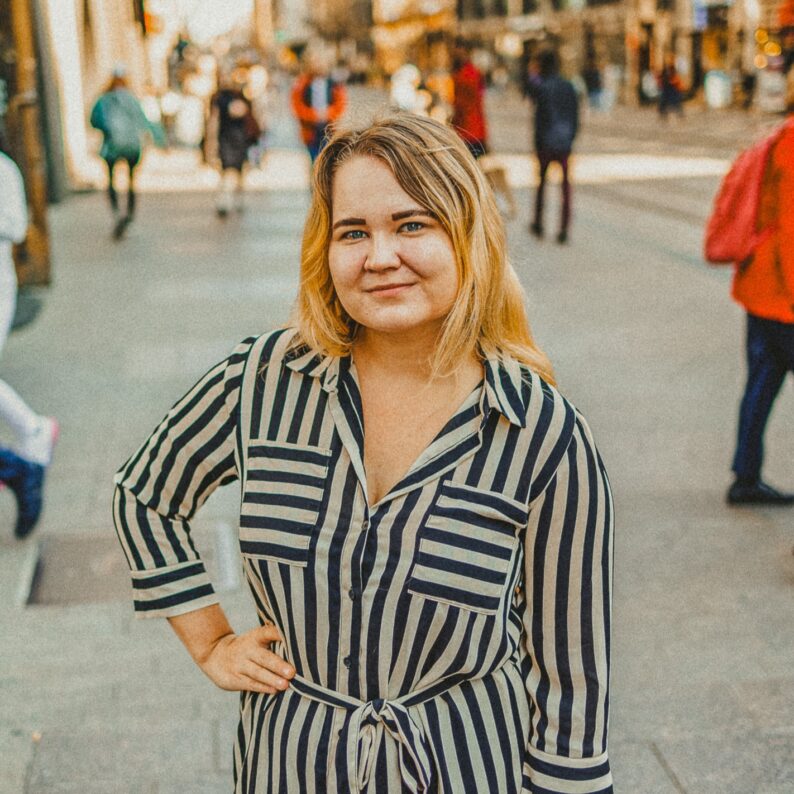


Ecolabels and greenwashing
BLOG
HYY’s committee members write about themes related to the committees’ action in their blogs. In this blog Iris Niinistö from HYY’s Environmental Committee ponders about ecolables and greenwashing.
The world of ecolabels and other responsibility certificates is hardly straightforward or clear. First of all, there are way too many to start with: when looking at all the labels there are, you would think that if certifications were the answer for responsible world trade and sustainable production chains, the problem would have been solved already!
The modern consumer is more demanding and wants to know the goods they buy are ethically and sustainably produced. Companies know this, so in addition to visual cues of responsibility, like green or brown packaging (which, by the way, is usually just the color of the package, not an actual sign of responsibility) or nice pictures, they are after all types of certifications that would make their brand and sustainability goals more believable. For the consumer, however, this poses a problem: it is hard to separate the more credible certificates from the ones that don’t hold much or any credibility. In addition to this, there is the unfortunate truth that even the certifications provided by third, independent parties can be problematic.
First of all, many certificates concentrate on some specific aspect of the production: they are concerned with ecological damage, or social sustainability issues, or less harmful chemicals – but not everything at once. This can be a good thing, in the sense that the criteria for a certificate does not get too complicated or ‘watered down’ – meaning that there are too many points, so nothing is actually regulated in the end. But it is an important thing to keep in mind. When buying coffee, for example, it is good to recognise that some certificates are interested in the protection of nature above all and hold weaker criteria for fair trade policies and social issues (like Rainforest Alliance) and vice versa. Another problem with even credible certifications is that many companies actually only use a small amount of certified ingredients in their final products to gain the label – and then make the rest up with non-certified material.
I do not want to throw the responsibility on the shoulders of the consumer. As individuals – and especially as poor students – we cannot solve this problem alone. There needs to be actual legislative change that concentrates on corporate responsibility – and this change needs to happen on a global level. Luckily, there are actors who work for these things, like The Consumer’s Union of Finland. They have set goals for the next government to tackle issues regarding green washing and sustainability.
You can also come and listen to a lecture given by the Consumer’s Union on 15 March as part of our Green Week! This said, there are always some things you can do yourself. I will give you three tips on how to navigate the confusing world of greenwashing and responsibility certificates.
1. Learn to recognise the more responsible actors and certificates
We have made a quick quiz to help you with this. It is worth participating in since you have a chance to win a coffee packet!
In short, you can usually trust labels more if they have some actual legislation behind them or if they are well established and regulated by trustworthy third parties. These labels include EU Ecolabel, Fairtrade and the Nordic Swan. Like I said, none of these are perfect and they regulate quite different things, but if you buy something with these labels on, you can trust that the criteria are usually met.
I would not trust anything that just states that they are ‘ecofriendly’ or ‘sustainable’ with a nice logo that does not tell you anything else. This also includes the little statements saying “sustainable development” or “ethically made” on top of pictures in different online stores: this is companies exploiting your trust and good will. Of course, no one wants to be associated with cutting rainforest and killing sloths or child labour and human rights violations – no one admits that they are behind such violence. But it is still happening, somebody is doing that – and trying to hide behind false certifications.
I would also be cautious of any certificate created by the company itself even when they are monitored by a third party. For example, the global coffee chain Starbucks has created their own C.A.F.E. Practices label which claims social and environmental responsibility and is regulated by a third party. However, there have been many concerns among activists on the actual credibility of the label.
2. Consume less
I know. It is always the same thing. But it is the simplest truth: your actions are more sustainable if you don’t buy as much. Of course, this is also a double-edged sword: if we all stopped buying coffee this instant, it would be catastrophic for the farmers cultivating and selling it – they surely would not be celebrating. Here, following the credible certifications is a good starting point for fairer world trade and consumption.
Certifications are criticised for being a way for the middle class and the rich to buy a ‘clear conscience’, whereas the poor in rich countries cannot afford certified products. I do agree that this is a fair criticism and needs to be considered. We live in a world so focused on consumption that basic social needs like a sense of belonging and identity are tied to the amount of stuff we own. In this culture, it can be hard to cut back on your own consumption. However, consuming ethically is not always more expensive than the alternative: it comes down to what you actually need. Do you need five trendy t-shirts or could you do with just one that is actually ethically and sustainably made – or could you use your phone for one more year even though it is not the latest tech? These kinds of decisions can prove to be less costly in the long run, even though they might not be so tempting at first.
3. Concentrate on (collective) hope and take action
Like with almost all environmental issues, the problem seems so vast and complex that it is easy to lose hope and motivation. Like I said, I do not want to throw the responsibility on the consumer, since it is not a problem one individual, or even ten or a hundred individuals can solve alone. But collectively, together with others, we can do a lot.
Therefore, I urge you not to lose all hope. There have been changes for the better, and there will be more changes made in the future. For example, the Fairtrade certificate was not founded until 1992, and since then, there has been actual change in the production chains and regulation of products. So even though certificates have their own problems, some of them have managed to actually regulate production and tackle the problems of unequal trade and ecological damage. We have already become more conscious and demanding consumers (I do not think my grandma or her friends in the 50s thought much about the origin of their coffee), so we have the ability to learn to separate greenwashing from actual credible claims.
To alleviate anxiety about these issues you can take action, either in a group or alone if you are not one for group work. I am not talking about anything drastic: the things mentioned above from consuming more mindfully to learning how to recognise greenwashing are already important acts. You do not have to be the most passionate environmental activist climbing on top of office buildings of the companies selling fossil fuels. You can start small – it does count, it is not for nothing. The fact that these problems are complex does not mean that they are unsolvable.
Iris Niinistö
HYY’s Environmental Committee
Sources
- Lai, Jessica C. “Hijacking Consumer Trust Systems: Of Self-Declared Watchdogs and Certification Trade Marks.” IIC – International Review of Intellectual Property and Competition Law 52, nr 1 (2021): 34-61.
- Poynton, Scott. Beyond Certification. First edition. London: Routledge, 2015.
- Ecolabel Index. All ecolabels in Europe.
- Fair World Project. Starbucks has a Slave Labor Problem.



